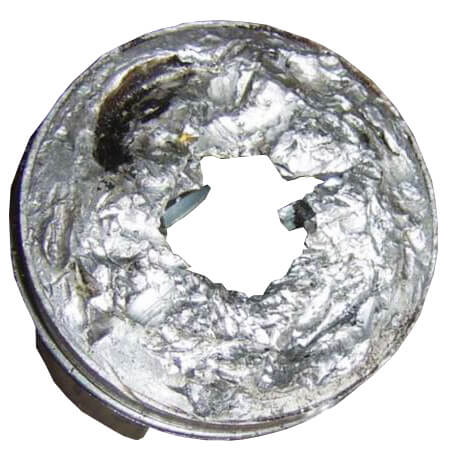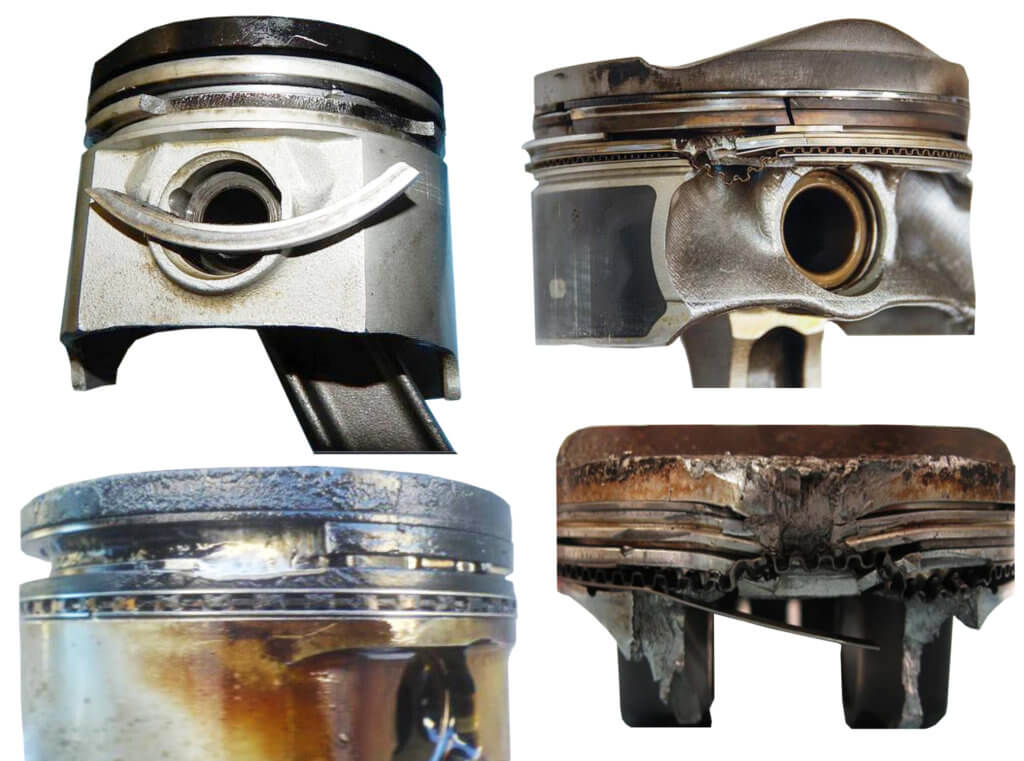Detonation
What is detonation?
Many people confuse the terms detonation and pre-ignition. Both may cause engine damage, but the root cause is different. Preignition, as the name implies is a combustion event that happens before the ignition system has provided a spark. The combustion can start from a hot spot within the combustion chamber and usually begins at low pressure, like at the very beginning of the compression stroke. Detonation, on the other hand, happens AFTER spark generation.
What causes detonation?
The number one cause of detonation when low octane fuel is used in an engine that requires a higher octane fuel. If an engine is designed for 91 or 93 octane fuel and you fill with 87 octane, the engine will experience detonation. Think of normal combustion like a single bomb explosion. The ignition starts and the thermal expansion and force spreads outward.
But detonation is different. The air/fuel mixture is under high pressure when the spark ignites the mixture. As the air/fuel mixture burns and flame front spreads, pressure inside the cylinder builds rapidly. That rapid pressure buildup causes other areas of fuel to self-ignite. The results is multiple flame fronts colliding. To follow with the bomb analogy, detonation is more like what happens when a cluster bomb is dropped; you get multiple thermal expansion fronts and the thermal expansion is irregular. Individual flame fronts collide with one another.
How an engine handles detonation
Modern engines monitor the combustion process with a knock sensor. When detonation or pre-ignition occurs, the knock sensor detects the multiple flame front collisions. If the ECM receives a knock sensor signal before spark generation, it automatically knows this is a pre-ignition event and it changes spark timing and alters the air fuel mixture. If the ECM detects knock sensor operation AFTER spark, it knows that it’s dealing with detonation.
In both cases, the ECM strategy will result in retarding the spark timing. If your engine was designed to burn premium fuel, but you fill with 87 octane, the ECM will retard spark but as much as 25%. If detonation still occurs after retarding spark timing by that much, the ECM will set a check engine light and store a trouble code.
What does pre-ignition do to your engine?
Pre-ignition causes super-heated temperatures

Piston damaged caused by the high heat of pre-ignition
inside the combustion chamber along with pounding opposing forces that:
• Burns the center dome of the piston
• Damages rod and crankshaft bearings
What does detonation do to an engine?
While  tends to melt the center of the piston, detonation damages the edges of the piston rings and lands.
tends to melt the center of the piston, detonation damages the edges of the piston rings and lands.
Detonation and octane myths
High octane fuel requires a higher ignition temperature. Myth! Octane has nothing to do with spark temperature. The spark temperature is the same for an engine burning regular versus high octane fuel.
High octane fuel takes longer to burn. Myth! The burn time is the same for regular and premium fuels.
High octane fuel contains more cleaning additives. Oil companies may add more fuel injector cleaners in their premium fuels simply because they charge more, but it’s not universal. You can’t claim that all premium fuels have more cleaning additives.
All premium fuel is ethanol free. False. Many premium fuels don’t contain ethanol. But fuel is a mixture of almost 150 different chemicals and every refiner has their own recipe. The fuel has to meet RON and MON octane ratings and it’s up to each company to formulate their gasoline to meet those rating. Since ethanol has a higher resistance to detonation, refiners can use it to boost the fuel’s octane level. You can’t make the claim that all premium gas is ethanol free.
Premium gas provides more power. This is misleading. Premium gas, by itself has nearly the same energy content as regular fuel (although some premium fuel may have slightly higher BTU content simply because of the components they add to reach the octane rating). If an engine calls for premium gas and you fill it with premium fuel, you will get the maximum power out of that fuel. If you fill it instead with regular gas, the ECM will retard spark timing to eliminate detonation and THAT will result in less power.
On the other hand, if you fill you tank with premium fuel and your engine was designed to run on regular gas, you will NOT get any more power from your engine. Premium gas doesn’t provide more power. Period.
©, 2019 Rick Muscoplat
Posted on by Rick Muscoplat
